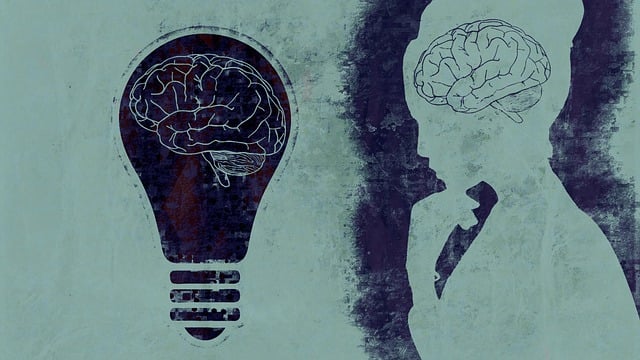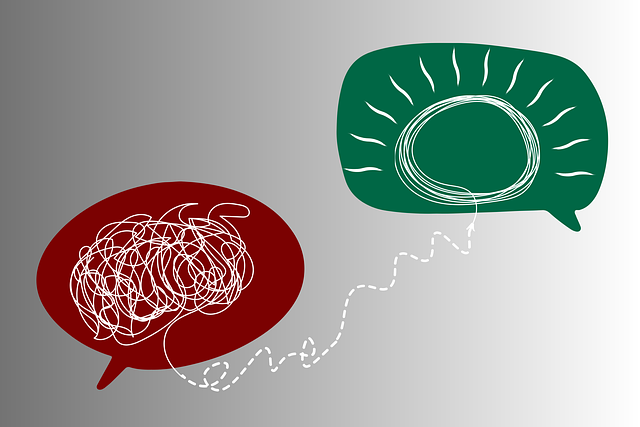Emotion regulation through hypnotherapy is a growing trend in adult therapy, offering deep relaxation and personalized coping strategies. Combining hypnosis with mindfulness and cognitive reframing, therapists help adults manage stress, anxiety, and past traumas, improving mental health and relationships. By identifying and labeling emotions, accessing the subconscious mind, and cultivating present-moment awareness, individuals gain emotional intelligence and resilience, preventing burnout and enhancing overall well-being.
Emotion regulation techniques are essential tools for adults seeking mental well-being. In today’s fast-paced world, learning to manage emotions effectively can significantly reduce stress and enhance overall quality of life. This article explores various therapeutic methods, including hypnosis, mindfulness, cognitive reframing, and emotion identification practices, all of which have proven beneficial in the context of therapy for adults. Discover how these techniques empower individuals to navigate their emotional landscape with greater ease.
- Understanding Emotion Regulation: Why It's Essential for Adult Well-being
- The Role of Hypnosis in Teaching Effective Coping Strategies
- Techniques to Identify and Label Emotions
- Mastering Mindfulness: A Powerful Tool for Emotional Control
- Cognitive Reframing: Challenging Negative Thought Patterns
Understanding Emotion Regulation: Why It's Essential for Adult Well-being

Emotion regulation is a vital skill that plays a significant role in an adult’s overall well-being. It involves understanding, managing, and responding to one’s emotions effectively. In today’s fast-paced world, adults often face numerous stressors that can trigger intense emotional responses. Without proper emotional regulation techniques, these feelings can become overwhelming, impacting mental health and daily functioning.
Teaching adults to regulate their emotions is a powerful tool in therapy, particularly through hypnosis. Hypnotherapy offers a unique approach to enhancing emotional well-being. By utilizing relaxation techniques and guiding individuals into a state of deep focus, it enables people to gain insight into their emotional patterns. This process fosters self-awareness, allowing adults to identify triggers, develop healthier coping mechanisms, and build resilience. Moreover, hypnosis can be tailored to address specific issues, such as anxiety or stress management, providing a personalized approach to improving emotional regulation and boosting confidence. Effective emotion regulation is not only beneficial for mental health but also essential for maintaining strong relationships and navigating personal and professional challenges.
The Role of Hypnosis in Teaching Effective Coping Strategies

Hypnosis is emerging as a valuable tool in teaching effective coping strategies for emotion regulation, particularly in therapy for adults. This therapeutic technique facilitates deep relaxation and heightened suggestibility, allowing individuals to gain unprecedented insight into their emotional responses. Through hypnosis sessions, clients can explore underlying beliefs and triggers associated with specific emotions, enabling them to develop personalized coping mechanisms. For instance, a hypnotherapist might guide an individual through a guided meditation to access past experiences that currently evoke strong emotional reactions, helping them reframe these incidents and gain new perspectives.
Incorporating cultural sensitivity in mental healthcare practice is essential when employing hypnosis as a therapeutic intervention. Hypnoterapists must be adept at tailoring their approach to suit diverse cultural backgrounds, ensuring empathy building strategies are culturally appropriate. By addressing individual needs with a focus on mood management, hypnosis can empower individuals to better navigate and regulate their emotions, leading to improved mental well-being.
Techniques to Identify and Label Emotions

Identifying and labeling emotions is a fundamental step in emotion regulation techniques teaching. Through therapy for adults, especially using hypnosis, individuals can learn to recognize their emotional responses more accurately. This process involves helping clients become attuned to physical sensations and associated thoughts that signal specific feelings. Hypnosis facilitates a deep state of relaxation, allowing the mind to access subconscious insights and memories linked to emotions, thus enhancing emotional intelligence.
In the context of trauma support services, this skill is crucial for managing intense reactions triggered by past experiences. Emotional regulation techniques teach adults to name their emotions—whether it’s anger, fear, or sadness—which paves the way for effective coping strategies. This ability is particularly relevant in healthcare settings where burnout prevention strategies for providers often emphasize the importance of emotional awareness and self-care.
Mastering Mindfulness: A Powerful Tool for Emotional Control

Mastering mindfulness is a transformative skill that can significantly enhance emotional regulation, especially for adults seeking therapy. This ancient practice involves focusing one’s awareness on the present moment, non-judgmentally, to gain a deeper understanding of emotions and thoughts. Through regular mindfulness exercises, individuals can develop coping skills to navigate intense feelings and reduce impulsive reactions. Hypnosis, often integrated into therapy sessions, serves as a powerful tool to access the subconscious mind, where many emotional responses are rooted. By guiding clients through hypnotic states, therapists can facilitate inner strength development, enabling them to better manage their emotions in daily life.
The benefits extend beyond therapy for adults, as mindfulness practices contribute to overall mental wellness. Regular engagement with this technique can improve emotional resilience, foster a greater sense of calm, and enhance one’s ability to cope with stress. As part of a comprehensive approach to mental health, combining mindfulness with hypnotic techniques offers valuable support for those seeking to regain control over their emotional responses. This holistic strategy is often explored in the context of production series focused on mental wellness, highlighting its growing significance in modern self-care routines.
Cognitive Reframing: Challenging Negative Thought Patterns

Cognitive Reframing is a powerful technique that plays a pivotal role in emotion regulation. It involves identifying and challenging negative thought patterns, replacing them with more balanced and positive perspectives. This process begins by becoming aware of automatic negative thoughts—those instant, often unconscious beliefs that color our perceptions and influence our emotions. Once recognized, these thoughts can be scrutinized for their validity and accuracy. For instance, if someone believes, “I always fail at everything,” they might question this generalization by considering specific successes or instances where they demonstrated competence.
This technique is particularly beneficial in therapy for adults, especially when combined with hypnosis. Hypnosis facilitates a state of deep relaxation and heightened suggestibility, making it easier to access and change deeply rooted thought patterns. By utilizing cognitive reframing during hypnosis sessions, individuals can learn to redirect their thoughts, thereby managing stress and preventing burnout—a critical aspect of Burnout Prevention Strategies for Healthcare Providers. Furthermore, coping skills development through cognitive reframing enhances self-care practices, enabling adults to cultivate a healthier mindset and improve overall well-being.
Emotion regulation techniques are invaluable tools for adult well-being, enabling individuals to navigate life’s challenges with resilience and adaptability. Through methods like hypnosis, mindfulness, cognitive reframing, and emotional identification, adults can gain profound control over their emotional responses. Incorporating these practices into daily routines fosters a healthier mindset and enhances overall mental health. For those seeking professional guidance, therapy for adults that incorporates hypnosis offers a transformative approach to mastering emotion regulation, ultimately leading to a more fulfilling and balanced life.








